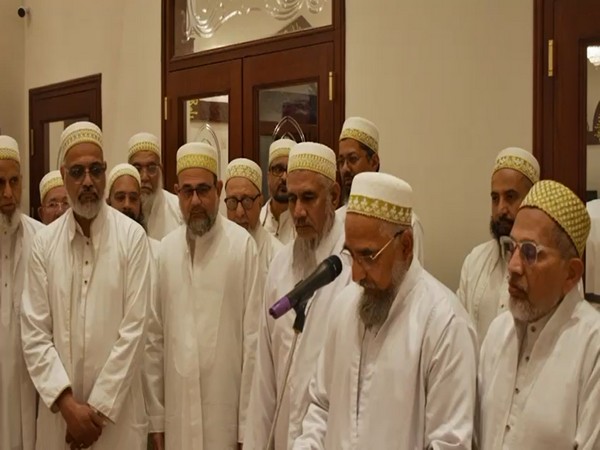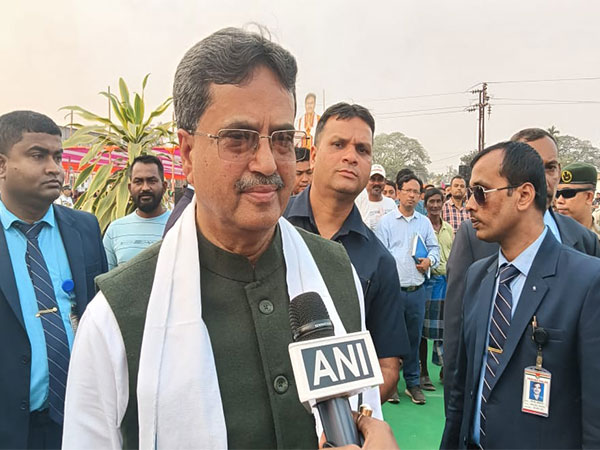Imran Khan using delaying tactics in face of no-confidence motion: Reports
Mar 22, 2022

Islamabad [Pakistan], March 22 : Amid the looming no-confidence motion against his government, Imran Khan has resorted to delaying tactics in order to somehow avoid the precarious situation the ruling coalition led by his Pakistan Tehreek-e-Insaf (PTI) faces at this point, media reports said on Tuesday.
Pakistan's top court has interfered in the political tussle by beginning to examine, on a daily basis constitutional issues pertaining to the no-confidence motion moved against Prime Minister Imran Khan's government.
The ruling regime has countered this by making a presidential reference to the court urging it to interpret provisions of the Constitution that determine the extent to which a lawmaker, elected to the House as the nominee of one party, can act and vote against that party. This is being seen as an attempt by Imran Khan to stop his own party's legislators from voting against the ruling coalition during the no-confidence vote.
The mood remains volatile with the army maintaining a stoic silence. Recently, a disgruntled ruling party lawmaker 'warned' Khan against replacing the present chief, General Bajwa, whose extended tenure ends in November.
Analysts say the all-powerful army had 'engineered' the 2018 elections in favour of Khan and media reports speculate that unhappy with the government's performance, the establishment has now become 'neutral'. This has emboldened not just the Opposition parties but also an estimated 20 lawmakers from the ruling PTI and allied parties to move against the government.
Media reports speculated that Khan had brought in retired General Raheel Sharif, a former army chief, to speak for him, ostensibly to General Bajwa, but the move failed.
Notably, Khan himself held a meeting with General Bajwa last Friday, where he was reportedly told by the Army chief to resign after the Organisation of Islamic Countries (OIC) conference in Islamabad, which began today (Tuesday).
Imran Khan requires the support of 172 members of Pakistan's National Assembly in order to save his government. While Khan claims to have the support of at least 20 more members, the defections from allies and his own party show that the claims are untenable, media reports said.
The government must resign if it loses the vote as per the Constitution, which could either lead to another government by a different leader, a government formed by the opposition provided they muster a majority.
There were media reports that the disgruntled PTI lawmakers, estimated to be about 15 are under Jehangir Tarin, Khan's confidante cum financier who has turned hostile. The allied parties have also signalled support to the opposition, but insist that they will open their cards on the day of the vote.
The rebels are said to be bargaining with Khan and his supporters. They have been demanding the removal of Usman Buzdar, the Chief Minister of the most populous and powerful Punjab province. Amidst charges of horse-trading by all sides, reports claim that Khan may agree to remove Buzdar, but needs time, not to be seen as if he is giving in to any 'blackmail.'
Meanwhile, National Speaker Asad Qaisar has announced March 25 for the trial of strength. However, the Opposition has called the move unconstitutional citing rules which state that the house needs to be convened within 14 days of a request being submitted by the Opposition which was submitted on March 8.
The Opposition has since threatened a no-confidence move against the Speaker who, they say, being elected to the House on a PTI ticket, is "taking orders" from Khan. Some media reports say Khan has 'directed' Qaisar to delay the crucial exercise.
Currently, there are two competing petitions with Pakistan's Supreme Court. One is a petition by the Supreme Court Bar Association (SCBA) that alleges large scale wrongdoing by the government and the ruling PTI and wants the apex court to intervene "to end anarchy" ahead of the motion. A Bench of two judges is hearing it.
On the other hand, the government has moved a presidential reference, the president is also a PTI/Khan nominee seeking the opinion of the court on Article 63-A of the Constitution which deals with the disqualification of parliamentarians over defection (being elected on one party's ticket, but crossing over another).
The presidential reference was filed under Article 186 which is related to the advisory jurisdiction of the SC. In the reference, President Dr Arif Alvi also asked the apex court whether a member who "engages in constitutionally prohibited and morally reprehensible act of defection" could claim the right to have his vote counted and given equal weightage or if there was a constitutional restriction to exclude such "tainted" votes.
"The courts may in fact become the battleground before the real battle on the floor of the National Assembly," Dawn newspaper stated while reporting the court's proceedings that could take long.




















